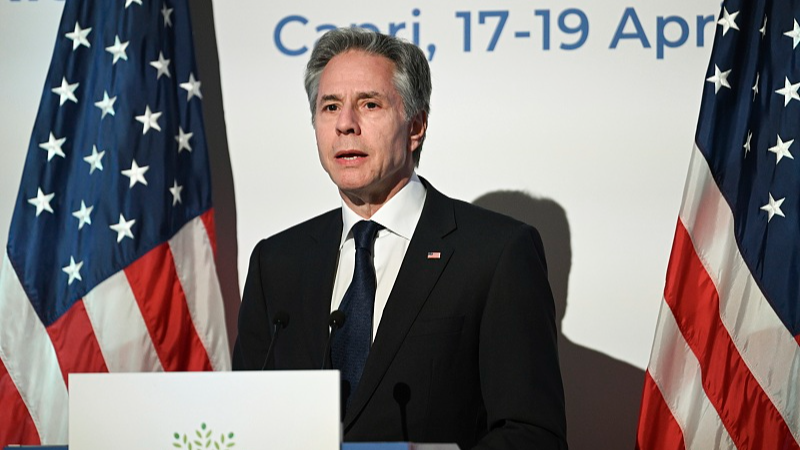Several global investors appear to have recently observed a “turn” in China’s economic governance.
Aside from multiple antitrust probes and data security audits of the country’s major internet firms, officials have put stringent rules on the off-campus tutoring industry and enhanced food safety assessments of prominent food brands.
Investors are wondering if China’s policy stance is changing as a result of the comprehensive rules inside the industries. How will the regulatory changes affect the capital market and China’s economic structure in the long run?
Global financial services analysts recognized the regulatory procedures as part of China’s long-term attempts to make growth more sustainable and inclusive, which are expected to bring benefits to the regulated sectors and the broader economy in the end.
In preparation for the commencement of China’s new five-year plan period in 2021, authorities have increased regulatory monitoring in a number of areas.
The country’s highest market regulator pledged in April to increase anti-trust law enforcement, imposing record fines on the country’s digital juggernaut Alibaba and beginning anti-monopoly investigations against internet giant Meituan.
Off-campus tutoring enterprises were put on hold in July when central authorities issued guidelines restricting financing for the for-profit off-campus training organizations in an effort to alleviate student burdens.
Market authorities in the country have also increased their crackdowns on food safety infractions, conducting on-the-spot inspections of a number of popular food brand chain stores and pushing rectifications from the concerned firms.
“The regulatory actions should be placed within the broader framework of China’s economic transition,” said Robin Xing, Morgan Stanley’s top China economist.
For example, the anti-monopoly legislation gave focus to issues such as the over-concentration of market power in a few IT behemoths, which might erode profit margins of small and medium-sized businesses, he added.
“The latest policy suggested a greater emphasis on social fairness, which will promote a healthier economic structure, more stable growth, and happier lifestyles for the people,” Wang Peng, an analyst with Hangzhou-based Yongan Futures, said.
According to Shi Jialong, Nomura’s head of China internet and new media research, the regulatory moves on China’s internet sector are a signal to enable the main platforms to divert their resources and energies away from excessive rivalry and into research on advanced technologies.
“We believe the internet business, which is famed for its tenacity,” Shi said, “should be able to adjust to the environment and sustain healthy growth.”
For a long time, the emphasis has been on quality rather than speed of development. Since the concept of “high-quality development” was introduced at the 19th Communist Party of China National Congress in 2017, China has been reorganizing its economy in order to make growth more sustainable and inclusive.
Financial risks have been mitigated, absolute poverty has been eliminated, and environmental contamination has been addressed. Meanwhile, the government has prioritized the strengthening of reforms on all fronts in order to promote a new development paradigm.
The latest Central Committee for Financial and Economic Affairs meeting, joined by the country’s top authorities, emphasized high-quality growth while emphasizing “shared prosperity” in its quest.
“If you go back, you’ll see that all of the policies can be traced back to the development ideology expressed in public publications,” Wang explained.
“Some folks missed the signs or didn’t fully comprehend it,” he explained.
For example, socioeconomic fairness has long been a policy objective, according to Wang.
With a GDP expansion of 12.7 percent in the first half of this year, China is on course to fulfill its 2021 growth objective of “over 6 percent.”
“This means the country has left enough room to promote measures that are critical to long-term development,” said Victoria Mio, Fidelity International’s director of Asian Equities.
According to Mio, the laws are beneficial to the long-term growth of the Chinese economy and capital market.
Fidelity International, which is bullish on the possibilities of the Chinese market, has sought to establish a wholly owned fund management company. In August, China’s top securities regulator authorized the proposal.
Furthermore, other global asset management behemoths are rapidly turning bullish on China. In an interview on August with the Financial Times, an investment strategist at BlackRock’s research team advised investors to increase their exposure to Chinese markets.
According to Wang, there are several reasons for investors to remain bullish on Chinese assets.
According to Wang, China’s bond yield is among the highest in major nations, but its stock market valuation is lower than in most developed economies, indicating the long-term investment worth of China’s assets.
“It’s impossible to remain confident in China and its assets,” he remarked.

 News6 days ago
News6 days ago
 World6 days ago
World6 days ago
 News3 days ago
News3 days ago
 World6 days ago
World6 days ago
 Sports3 days ago
Sports3 days ago
 Travel & Culture4 days ago
Travel & Culture4 days ago
 News4 days ago
News4 days ago
 Travel & Culture4 days ago
Travel & Culture4 days ago






























